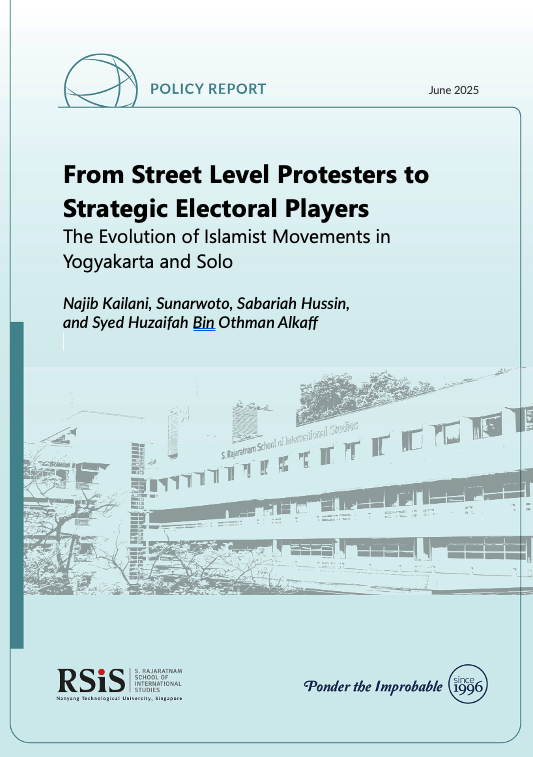18 June 2025
- RSIS
- Publication
- RSIS Publications
- From Street Level Protesters to Strategic Electoral Players: The Evolution of Islamist Movements in Yogyakarta and Solo
Executive Summary
This report explores the evolving role of Islamist movements in Yogyakarta and Solo, two of Java’s most symbolic cities, across Indonesia’s 2014, 2019 and 2024 presidential elections. It shows how movements once defined by ideological rigidity and oppositional postures have grown more pragmatic, politically engaged and influential in shaping voter dynamics. In the two cities, Islamists have moved beyond street-level protests – notably through the 212 Movement, the protest movement that briefly united diverse Islamist factions in opposition to President Jokowi following the blasphemy case against Governor Basuki Tjahaja Purnama (Ahok) in late 2016 – to become strategic electoral actors embedded in local and national politics.

Executive Summary
This report explores the evolving role of Islamist movements in Yogyakarta and Solo, two of Java’s most symbolic cities, across Indonesia’s 2014, 2019 and 2024 presidential elections. It shows how movements once defined by ideological rigidity and oppositional postures have grown more pragmatic, politically engaged and influential in shaping voter dynamics. In the two cities, Islamists have moved beyond street-level protests – notably through the 212 Movement, the protest movement that briefly united diverse Islamist factions in opposition to President Jokowi following the blasphemy case against Governor Basuki Tjahaja Purnama (Ahok) in late 2016 – to become strategic electoral actors embedded in local and national politics.






